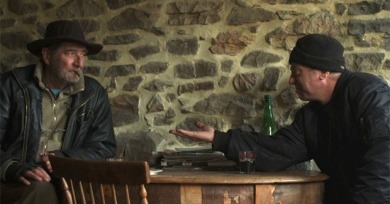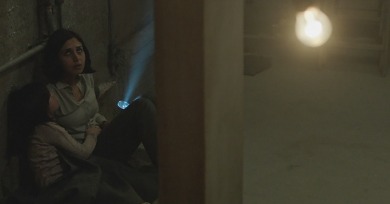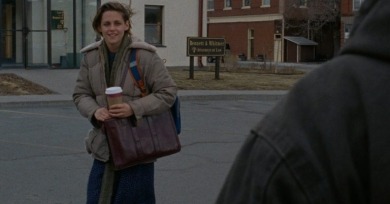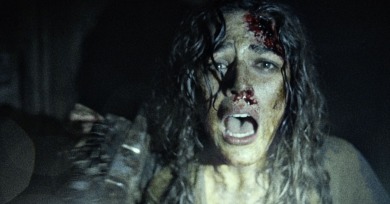Reviews
With his willingness to throw ordinary characters into almost unbearably tragic situations from which no greater meaning seems salvageable, Lonergan stands apart from the bulk of American narrative directors working today.
Marcel is the younger of the pair, and over the course of the film, we watch him turn from 52 to 53, lose his wife of 16 years, navigate single parenthood, and attempt rehab for alcoholism.
To the extent that eroticism is about arousing acceptable forms of sexual desire, then, Elle tries to separate its motivations: using sex because one needs it, i.e. to satisfy a compulsion or dominate another through rape (unerotic), or enjoying it as an end in itself (erotic).
Directed with a rare combination of aesthetic vigor and emotional delicacy, this is a film that resonates in our culture and moment not because it was manufactured to matter, but because in its every breath it has clearly stayed true to itself.
Instead of immersing us solely into the experience of the immigrants arrived at Lampedusa, Rosi winds us around the small island again and again, meeting its lifelong denizens and newly arrived, feeling its culture and traditions and how they have or have not been affected by the influx of refugees from abroad.
Ironically for Park Chan-wook, idolized for his male revenge fantasy Oldboy, the film is an attempt at feminist filmmaking. Its structure embodies not only the female gaze but also female subjectivity, the subconscious, memory, and so on, with swift camera movements and alternating chronologies.
Probably the most impressive thing about Under the Shadow is how it manages to integrate the social and political realities of its chosen time and place into the demands of a genre narrative.
Her ability to wrangle A-list talent for her B-minus budgeted productions, is a testament to talent, self-determination, and judicious sense of adaptability—all of which could be descriptors of the people we see onscreen in Certain Women.
In Aquarius, a woman in her sixties faces threats (some real, some perhaps imagined) to her continued existence in the titular three-story beachfront apartment building she has lived in for decades and which developers hope to raze and replace with a lucrative high rise project.
The tension in Sieranevada is between the various lies told and recalled by its characters and the relentless objectivity of its camera, which swoops, pans, hovers, lurks, sulks, and retreats in sync with its subjects but, crucially, does not embellish.
American Honey is one of those movies where you can take any demerit and explain it away as an attempt to exemplify something of its subject. Maybe its malnourished heft reflects our obesity epidemic?
There is nothing here that comes close to the subliminally effective terror of the original. Instead, Wingard expectedly goes for full-throttle, high-decibel horror, amping up the Blair Witch model for the ADHD generation, providing an endless array of false scares and loud crashes.
A thousand different films could have resulted from this tale, and most of them would have been stirring schmaltz at best, but the property fell into the hands of Clint Eastwood, at age 86 one of the most fundamentally sound and unaffectedly idiosyncratic directors making multiplex movies today.
Philippe Faucon’s films, especially his more recent ones, which focus on the French-Arab experience, show an affection for domestic workers, their gestures and the spaces their bodies navigate.













